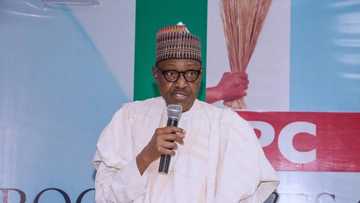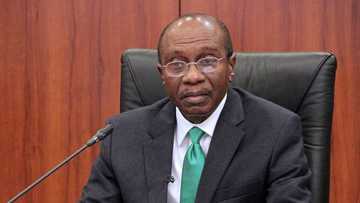Tambuwal’s Education Revolution in Sokoto State by Ifeanyi Okereafor
Editor's note: Public affairs commentator, Ifeanyi Okereafor writes on the giant strides of Governor Aminu Waziri Tambuwal in Sokoto, noting that state of emergency declared in the educational sector has placed the northwest state on a higher pedestal than other states in the country.
Sokoto state governor and former Speaker of the House of Representatives, Alhaji Aminu Waziri Tambuwal, is no doubt a foremost contender in the 2023 presidential race.
Tambuwal’s approval rating has continued to soar across the nation as Nigerians take more interest in his performance records, particularly in his last seven years as governor of Sokoto state.

Source: Facebook
Among the array of leaders eyeing the presidency, Governor Tambuwal stands out in terms of proven capacity to deliver on mandate with manifest accomplishment in critical sectors of polity stability, infrastructure, education, agriculture, transportation, healthcare, and human capital development, which many believe will reposition our nation if duplicated at the national level.
Of particular reference is Governor Tambuwal’s unprecedented achievements in education in Sokoto state with his declaration of a state of emergency in the sector.
PAY ATTENTION: Join Legit.ng Telegram channel! Never miss important updates!
Upon assumption into office in 2015, Tambuwal declared a state of emergency on the state educational sector in December 2015. The following year, the Right to Education Bill, 2016 was passed. The bill made education a justiciable right and made it illegal for parents to keep children out of school in the state.
Following the passage of the bill, the Tambuwal government followed up with the renovation of schools which it handed over to the various local governments for direct management while the state provided funds to ensure their maintenance.
Between 2016 and 2019, two junior secondary schools each were built in all the 23 local government areas in the state. Also, four junior secondary schools were built in the state capital. The Tambuwal government also commenced the renovation of 1500 primary schools across the state and 180 junior secondary schools which are now at the over 70% completion rate.
To ensure the desired leap the Tambuwal administration increased the state's budgetary allocation to the educational sector. Sokoto state is one of the few states in Nigeria which has consistently allocated more than 26% of its budget to education. This has shown the governor’s commitment to education in the state.
Moreover, it is instructive to note that since 2016 over 600,000 children have been enrolled in school with a consistent rise in the number of children getting back to school.
Most important to note though is the fact that the Tambuwal administration has focused on getting more girls into school thus improving the lives and chances of women within the state. Between 2016 and 2017, Sokoto state recorded no less than a 4.4% increase in the enrolment of girls into primary schools.
The government, prepared for any drag back in girlchild enrolment, created an agency for Girl Child Education which focuses on getting more girls into school by engaging with their parents and communities on the importance of educating the girl child.
Following a combination of community enlightenment and cash-backed incentives, there has been a massive increase in the enrolment of girls into schools across the state.
The increase in enrolment of girls into school has also seen the government taking matching actions by constructing more girls-only schools across the 23 local government areas as well as government science senior secondary schools in each of the three senatorial districts thus allowing direct entry for girls who had finished from the junior secondary schools within the state.
The scorecard of the Sokoto state government under the leadership of Tambuwal has shown a massive increase in the number of girls being enrolled.
In 2012, the number of girls enrolled at junior secondary schools within the state stood at 22,021 and by 2016, the number increased to 71,132. Enrolment into senior secondary had also seen an increase from the numbers in 2014 which stood at 22,755 and stood at 27,004 in 2017.
While these numbers look impressive, the Sokoto state government recognised that there were many setbacks to their plan irrespective of how much had been spent on building schools and convincing communities to allow their female children to attain education.
One major setback was the absence of a law to prevent girl-child marriage in the state. To this end, in November 2021, 18 years after the passage of the Child Rights Act 2003, the Sokoto state government joined the rest of Nigeria in domesticating the Child Rights Act.
After nearly six years of engaging stakeholders, the Tambuwal administration was able to achieve what most people thought could never be achieved in the most conservative part of northern Nigeria, the seat of the Caliphate.
Leadership is about dialogue, action, perseverance, and review of action. Governor Aminu Waziri Tambuwal has shown resilience, honesty, and commitment in governance and political pundits believe that such leadership is needed at the national level in the general effort to rescue and rebuild our nation for the good of all.
Disclaimer: The views and opinions expressed here are those of the author and do not necessarily reflect the official policy or position of Legit.ng.
Your own opinion articles are welcome at info@corp.legit.ng— drop an email telling us what you want to write about and why. More details in Legit.ng’s step-by-step guide for guest contributors.
Contact us if you have any feedback, suggestions, complaints, or compliments.
Source: Legit.ng






